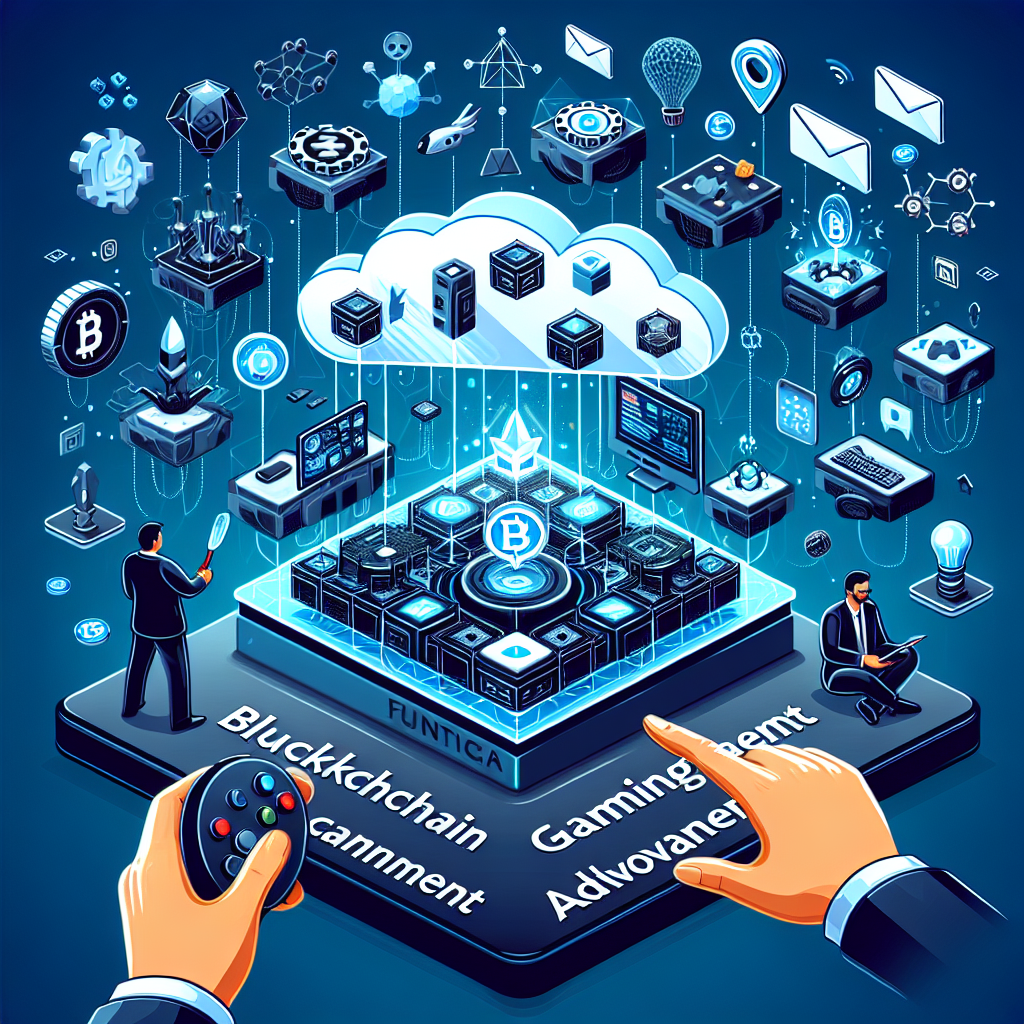Altcoins
Funtico Revolutionizes Blockchain Gaming with PaaS and Immersive Gameplay Innovations

The rise of non-fungible tokens (NFTs) dramatically transformed the landscape of the blockchain gaming industry. These unique digital assets were among the most hotly debated topics in 2021, with many industry experts predicting they would revolutionize gaming. However, the reality has been somewhat different for many of the NFT-based games that initially captured the public’s imagination. For instance, Axie Infinity’s in-game currency, Smooth Love Potion (SLP), has seen its value plummet to a mere fraction of its peak, trading at over a 99% decrease from its all-time high of $0.3997 during the NFT boom. Similarly, rare cards in God’s Unchained, which once fetched prices near $10,000, are now available for as little as $105.
This dramatic fall in value has not only diminished the allure of NFT gaming assets but also attracted significant criticism. Skeptics argue that blockchain-based games are struggling to compete with traditional gaming platforms for several reasons, including subpar gameplay, unsustainable tokenomics, and complex technical barriers that discourage Web2 developers. Nonetheless, despite these challenges, the post-NFT era appears to be laying the groundwork for a new and potentially transformative phase in gaming.
As the broader cryptocurrency market has endured a bear market, this period has provided an opportunity for innovation and progress within the blockchain gaming sector. Over the past two years, significant advancements have been made, pointing towards a future where blockchain technology could play a crucial role in gaming ecosystems.
One such advancement is the emergence of Publisher-as-a-Service (PaaS) platforms in the Web3 space. Initially, many game developers were hindered by a lack of technical knowledge regarding blockchain integration. However, platforms like Functico are bridging this gap, providing resources that enable both Web2 and Web3 developers to create games on the blockchain. Functico’s comprehensive, chain-agnostic platform offers a suite of development tools designed to simplify the process of launching and operating blockchain games. The platform’s features include a 360-degree studio for game publishing and creating sustainable reward systems, as well as a creator’s studio for minting custom NFTs. This approach allows developers to incorporate blockchain technology into their games without starting from scratch, potentially removing a significant barrier to entry.
While still in its infancy, the PaaS model represents a significant step forward in creating a more accessible and inclusive environment for game developers. By lowering the technical threshold, these platforms could attract top-tier developers who might have previously dismissed blockchain gaming due to its complexity.
A shift towards prioritizing gameplay over speculation is another positive trend in the current blockchain gaming landscape. Early blockchain games often suffered from flawed tokenomics, focusing on speculative investment rather than engaging and immersive experiences. This focus resulted in high turnover rates as players quickly lost interest. However, the latest wave of blockchain games, such as “World of Dypians” (MMORPG) and “SERAPH: In The Darkness” (action RPG), emphasize rich, engaging gameplay, showcasing a shift towards creating genuinely enjoyable gaming experiences.
Additionally, the growing popularity of tap-to-earn games on platforms like Telegram is noteworthy. These games, such as Lucky Funatic, Notcoin, Hamster Kombat, and Catizen, have proved effective in introducing new users to cryptocurrency ecosystems. The tap-to-earn model has gained traction, with a market valuation of $2.4 billion and user bases exceeding 400,000 monthly players in some cases.
Traditional gaming studios are also beginning to explore blockchain technology, either by developing proprietary blockchain-based games or entering into strategic partnerships within the space. A 2023 report from Coingecko indicates that over 73% of major global gaming companies are now involved in blockchain initiatives in some capacity. Companies like Epic Games and Konami are actively integrating blockchain elements into their platforms and game marketplaces, signaling a broader industry shift towards Web3 technology.
These developments suggest an impending transformation of the gaming industry, driven by Web3 technology. Traditional game publishers bring significant resources, both financially and in terms of talent, positioning them well to influence the future of gaming. As the speculative bubble surrounding NFTs deflates, the focus is shifting towards building sustainable gaming economies where players have true ownership and can participate in governance through decentralized autonomous organizations (DAOs). As Web3 continues to gain prominence, further innovation and integration within the gaming sector are anticipated, paving the way for a new era of blockchain gaming.
-

 Press Releases2 years ago
Press Releases2 years agoGaming Technologies of the New Time!
-

 Altcoins12 months ago
Altcoins12 months agoBitcoin Declines Below $80K: deVere CEO Nigel Green Remains Bullish on Long-Term Outlook Following Strategic U.S. Bitcoin Reserve Announcement
-

 Altcoins11 months ago
Altcoins11 months agoCalls for Enhanced Discussion on Bitcoin as Brazil’s Reserve Asset: A Move Towards ‘Internet’s Gold’
-

 Bitcoin1 year ago
Bitcoin1 year agoBitcoin Surges Past $64K as SEI and POPCAT Lead Daily Crypto Gains on September 25
-

 Press Releases2 years ago
Press Releases2 years agoEvo Exchange: Redefining the Decentralized Exchange Landscape
-

 Bitcoin7 months ago
Bitcoin7 months agoGrayscale Investments Submits Draft Registration for IPO, Aiming for Public Trading in U.S.
-

 Press Releases1 year ago
Press Releases1 year agoCODE, a Newly Born Project Brings Decentralization Back to the Main Menu
-

 Bitcoin7 months ago
Bitcoin7 months agoPeter Schiff Critiques New Crypto Legislation, Claims Bitcoin (BTC) Gains are Short-Lived




